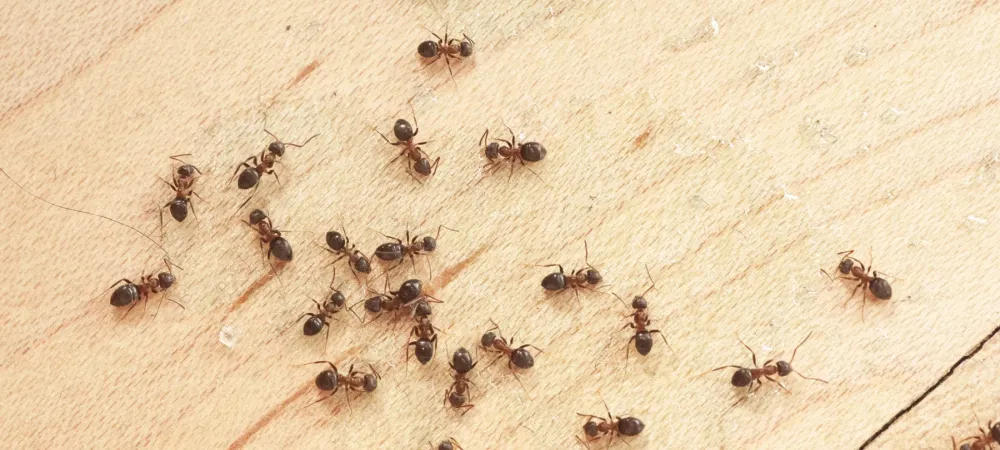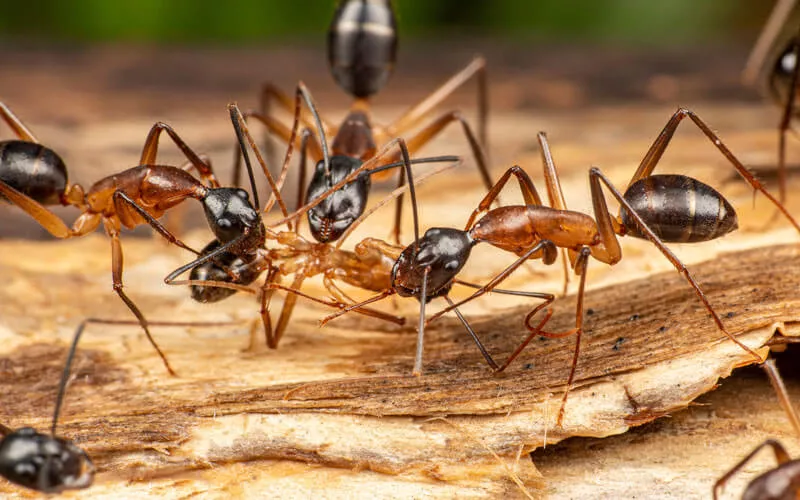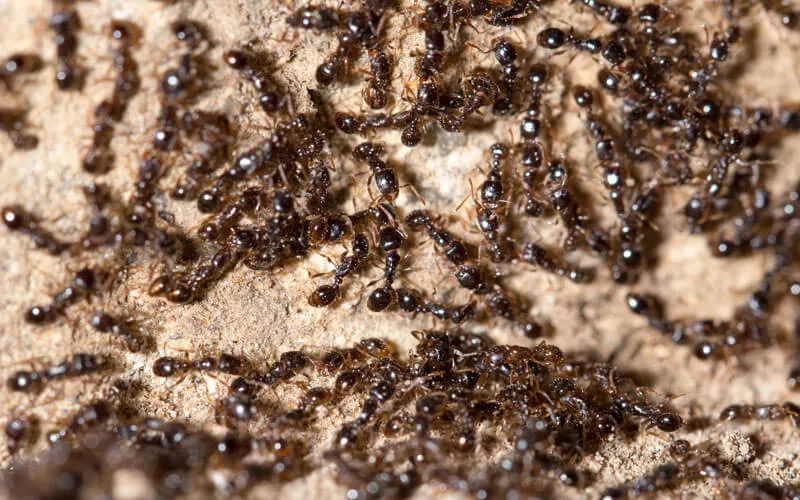Carpenter Ants Vs Black Ants

Carpenter ants and black ants are two common species of ants that can be found in many parts of the world. While they may look similar at first glance, there are several key differences between them that can affect their behavior and their impact on human environments. In this blog post, we will explore these differences in detail.
Physical Appearance of Carpenter Ants vs Black Ants
Carpenter ants are typically larger than black ants, with workers measuring between 6-13 mm in length. They are usually black or red in color, with a segmented body and a distinct waist. Carpenter ants also have a pair of large mandibles which they use to chew through wood and other materials.

Black ants, on the other hand, are much smaller, with workers measuring between 2-4 mm in length. They are usually black or dark brown in color, with a narrow waist and a more slender body. Black ants also have a pair of antennae on their heads, which they use to sense their environment.

Differences in Diet Between Carpenter Ants vs Black Ants
Carpenter ants primarily feed on protein and sugar, which they obtain from a variety of sources including insects, plant sap, and sweet foods like fruit and nectar. They are also known to consume wood, although this is typically only done to create nests and tunnels rather than as a food source.
Black ants, on the other hand, have a more varied diet that includes both protein and carbohydrates. They commonly feed on dead insects, honeydew produced by aphids, and other small insects they can capture.
Damage Caused by Carpenter Ants vs Black Ants
One of the biggest differences between carpenter ants and black ants is the damage they can cause. Carpenter ants are notorious for their ability to chew through wood, which can lead to significant structural damage if left unchecked. They create large nests in wooden structures, and over time this can weaken the wood and cause it to break apart.
Black ants, on the other hand, are not known for causing significant damage to structures. While they may be a nuisance in homes and gardens, they do not pose a serious threat to property.
Behavioral Difference of Carpenter Ants vs Black Ants
Carpenter ants are primarily nocturnal and are most active at night. They are also very territorial and will aggressively defend their nests against intruders. Carpenter ants are also capable of establishing satellite colonies, which can make it difficult to fully eradicate an infestation.
Black ants are diurnal and are active during the day. They are social insects and live in large colonies, with workers and soldiers working together to care for the queen and her offspring. Black ants are also known for their ability to follow scent trails, which they use to locate food and navigate their environment.
Differences in Habitats Between Carpenter Ants vs Black Ants
Carpenter ants typically build their nests in damp, dark areas like basements, crawl spaces, and wall voids. They prefer to nest in wood that has been softened by moisture or decay and will often excavate large tunnels and chambers inside the wood.
Black ants are more likely to build their nests outdoors, although they will also nest inside buildings if they can find a suitable location. They prefer to nest in soil, and will often build their nests in gardens, lawns, or other areas with loose, moist soil.
In conclusion, while carpenter ants and black ants may look similar at first glance, there are several key differences between them. Carpenter ants are larger, primarily nocturnal, and can cause significant damage to wooden structures. Black ants are smaller, diurnal, and are known for their ability to follow scent trails. Understanding these differences can help homeowners and pest control professionals to identify and manage ant infestations more effectively.
If you need help identifying the type of ant infesting your home or are looking for effective treatment options, contact our experienced ant exterminators today.
Don't let unwanted pests compromise your comfort and safety another day. With over 52 years of family-owned expertise, Suburban Pest Control offers fast, discreet solutions tailored to your needs. Our dedicated team of professionals stands ready to eliminate your pest problems while upholding our core values of integrity, teamwork, and exceptional service. Contact us today for a consultation and experience the peace of mind that comes with entrusting your home or business to a company that has been protecting our community since 1974.
